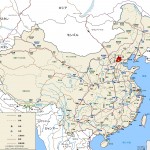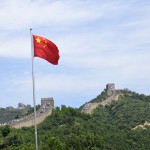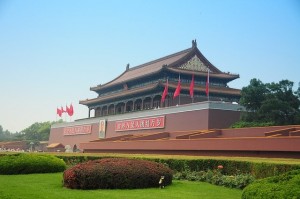E-News & Songs 2021年12月活動報告
月間リーダー:宮武捷二
 Japan Times記事「Is the world ready for a more powerful Xi Jinping?‐世界はより強力な習近平に対する準備はできていますか?」の読了後、各自のザックリした「現在の中国観とそれに対する日本の備えはどうあるべきか?」について全員で話し合い、大要以下のような意見を見た。
Japan Times記事「Is the world ready for a more powerful Xi Jinping?‐世界はより強力な習近平に対する準備はできていますか?」の読了後、各自のザックリした「現在の中国観とそれに対する日本の備えはどうあるべきか?」について全員で話し合い、大要以下のような意見を見た。
1.歴史的経緯(Historical background):
1921年ソ連コミンテルン指導の下、13名の党員で中国共産党創立、その後28年に及ぶ中国共産党内におけるヘゲモニー確立の為の内部抗争、対国民党工作、日中戦争、内戦での激烈な闘争の後勝利を経て1949年中華人民共和国成立。
1951年:反革命分子鎮圧運動(鎮反運動)- 犠牲者約71万人
1955年:粛清反革命分子(粛反運動 ‐ 犠牲者約8万人
1957年:反右派運動 ‐ 55万人公職追放、農村での強制労働と収容所へ
1958-1961年:毛沢東大躍進政策発動するも種々の要因により大失敗、数千万人の餓死者、毛沢東国家主席辞任し、劉少奇国家主席に、鄧小平と調整政策進める。
1966-1976年:文化大革命(無産階級文化大革命)- 調整政策を進めていた劉少奇・鄧小平らを「資本主義への道を歩む「走資派」」と批判し、紅衛兵を動員した文化改革運動を装った毛沢東らによる大躍進政策失敗をなきものにする為の奪権運動、政治闘争であった。1976年第一次天安門事件と毛沢東の死により、江青らの4人組が逮捕され動乱の10年が終わった。
2.平和的台頭(Rise in peace‐ phase1)
1978年12月の第11期三中全会において鄧小平指導の下、経済建設の重視と改革開放政策の採用に踏み切る歴史的決定が行われた。1989年の第二次天安門事件後一時的に経済成長が停滞した。しかし1992年1月、鄧小平の「南巡講話」により改革開放の重要性を強調、市場経済化の流れを再び呼び戻し、以後中国経済は力強い経済成長を続けることとなった。中国の台頭は完全に平和的なもので既存の権力構造を変化させず領海や国際海洋法条約、金融取引についても「国際的なルールに従う」というものだった。ただ彼らは国内の一党独裁体制は維持しながら国際的なことは「受け入れる」としただけでそれに関わる外交交渉を行う意思は持たなかった。
1965年 1980年 1984年 2020年
人口 7億人 14億1千万人
GDP 4540億元 100兆元
経済成長率 7.91% 15.20% 2.34%
*経済成長率2020年は2.34%とコロナ下の世界水準では高めを維持し2021年は8.02%を目指しているとする。
*国防費:2020年現在、過去10年で約11倍増加し約19兆2千億円と米国の予算の3割強に上昇している。日本の防衛費は2020年中国の19.4%。
1993年以来2021年まで28年間国民と共に欧米、日本、台湾の政治的、経済的、軍事的圧迫に対して艱難辛苦を耐え忍び外国企業への安価な労働力を提供してひたすら米ドルを貯めてきた。やがて安かろう,悪かろうの中国製品が全世界で安価で手軽な日用品として評価を受け始め中国は儲けた外貨で先進国の最新鋭装置や機械を輸入し独自の発展を遂げてきた。もうこの世界経済の回転軸はいくら米国が経済制裁を加えようとも当分の間だれも止められない状況である。これは鄧小平が掲げた中国の”Observe calmly, face the difficulties with full composure, and defend our position. Don’t stand out and accumulate our own power. Don’t waste time also never pursuit the hegemony”という平和的な国際環境の確保を対外政策の基本方針とした成果である。
3.対外強硬路線(External hard line-phase 2)
平和的台頭Rise in peace policyは合理的な費用対効果の推測を含んだ冷静な計算を行い日本や米国からの支援や投資を受けることが出来た。その故、経済的発展は著しかったが、国際秩序を脅かしてはいなかったし、周辺の国にとっても脅威ではなかった。このような幸運から得るべき教訓は当然ながら「phase 1をそのまま続けろ」である筈だった。しかし2008年のリーマンショック後アメリカを筆頭に世界中で急激な景気後退が進行するなか、中国は約4兆元(約56兆円)にものぼる大型景気刺激策を発表し、いち早く経済成長を回復させた。これにより米欧の西側先進国が没落に向かうと考えた中国は、これ以上彼らの言うことに従っている必要はなく中国は物事を決める立場に立つべきだと考えるようになり、胡錦濤らが採用してきたPhase-1は中国の力を十分に反映していないと考えるようになった結果が2009年頃から始まった新たな対外政策phase2の基調である対外強硬路線である。近年習近平氏の動きはあまりに多くの世界が気にする性急な動きが目立つ。
① 九段線内の南シナ海の領有権を主張(南沙諸島、西沙諸島、周辺の海域、大陸棚) これは南シナ海の200万平方キロ/350万平方キロに当たり、ベトナム、フィリピン、オーストラリアとの領有権問題について2016年7月12日オランダ・ハーグの常設仲裁裁判所は「国際法上の法的根拠がなく、国際法に違反する」との判断を下し中国の主張を退けた。が、中国はこの判決を一蹴。又、南沙諸島における中国は暗礁を埋め立て人工島を造成軍事基地化している。
②尖閣諸島問題 ③海警法 ④台湾への軍事的圧力 ⑤香港国家安全維持法の施行。
⑥新型コロナウィルスの発生源隠蔽 ⑦一帯一路構想を利用した領地や資源の獲得戦略/アフリカなどでの鉱物資源搾取の動き
⑧債務の罠(金は力なり)債務返済が不可能になることを見越した長期的利権獲得構想
⑨ウイグル自治区の人権問題など、多くの国際的問題に絡みそれらに対する批判や透明性の要請に応えない。
⑩2021年7月1日中国共産党創建100年周年記念式典で1時間にわたって「中華民族の偉大な復興」について演説した。その意味するところは1840年のアヘン戦争以前の「清朝時代の失地回復宣言」をしたとみることができる。これは中国の力による現状変更、領土拡大に正当性根拠を与えようとするものであり「台湾問題を解決し、祖国の完全な統一を実現することは中国共産党の歴史的任務であり、中華の人々全体の共通の願いだ」と述べた。台湾有事となれば日本有事に直結である。
4.このような習近平氏の中国に対し日本の備えはどうあるべきか?
(How Japan should prepare for this Xi Jinping’s China?)
A: China will grow and become No.1 in the world both in production and armament.China and CCP will be more strongly established by 2030.Japan must change the basic concept and way of thinking which has prevailed for long time. Drastic change is needed.
1) No war, but must have power to attack for self- defense. The constitution should be amended.
2) Basic employment concept must be changed, no age wage system and no life time employment. Education system must be targeted from entrance exam oriented to practical competence oriented、and each individual company should become more aggressive in investment for its growth.
3) Political system and bureaucratic system must be changed from the present system. Political system from concession(利権) oriented to structural change oriented. Bureaucratic system from vertically divided organization to matrix organization and function oriented.
4) Japan must strengthen its economic and defense capabilities basically going back, while Japan should get along with China as a peace-keeping country and work as an intermediator between U.S. and China. .Should we fail to realize such a diplomatic route, Japan would not be an real independent country. It means Japan may be occupied by China or Japan would be destructed completely just like the end of the World War II. Japan would lose whole infrastructure and total information system instead of loss of houses and lives, this time. (There was an opinion – In case, if we have to choose U.S. or China, which you take? Of course U.S.)
B: China’s application for membership in the TPP is a good test for considering Japan’s future trade policy. The negotiations on issues such as incentives for state-owned enterprises in China, transparency of data distribution, fairness, and basic workers’ rights, which have already been revealed, and Japan never compromised even if China seeks various exceptions. It may be a coherent argument that it should be done. However, there are some doubts. (1) Some countries that are highly dependent on trade with China may support China’s accession even with anticipation of exports to China. If China joins in this way, the TPP will change and become “Chinese.” (2) If China joins the TPP, it will have the right to veto any country’s membership application thereafter. That is probably why Taiwan applied for membership the week after China’s application. Even if the United States wishes to return to the TPP in the future, it will be difficult to participate if China has the right to veto.
There is a credit problem regarding compliance with the rules. When China was joining to WHO, they promised to establish domestic laws and regulations to comply with the rules, but they are still not fulfilling the obligations, such as unfair industrial subsidies and so on. In addition, China has ignored the decision of the International Court of Justice and has repeatedly acted against it in the South China Sea.
Because the intention of CCP is absolute and it is justified to ignore anything that does not meet this even if it is a law. It is highly possible that China will require exceptional measures to the TPP membership application due to ignore the provisions and to get their own convenience.
Looking at the history so far, it becomes clear that what is being asked now is not the further liberalization of trade, but how the foreign economic policy can be positioned in the national strategy.
The key is how to cooperate with credible and reliable countries and secure a multi-layered “coalition of the willing” on the basis of a regional security system centered on the United States and used as a base on the Japan-US and US-Australia alliances. Under these circumstances, it is necessary to promote to build both security and economy policies at the same time.
C: Premise – Chinese government (including China Communist Party) and people of China should be considered separately when we become strategic towards China. At this present moment, Chinese government is least united with Chinese people except through money making.
Suggestion 1
・In any case of unavoidable conflict on diplomatic, economic, military or any other front, make peace with them with utmost flexibility, and even with maximum possible compromise. What is crucially important is avoiding any irreparable confrontation with them. Because China is literally a bull in a china shop.
Suggestion2.
・Define clearly what our core interests which we could not yield an inch to them . Then defend them by all means.
Suggestion3
・Wherever or whenever possible, do every possible thing to effectively persuade people of China to understand that Chinese Government misrepresents them. That represents merely themselves for their interests and its survival.
Teach them that they have no sovereign right to decide their own government. In the modern society that right belongs solely to citizen, not to government. People can decide what they want the government to do. China is in a totally out of common sense. By keep on doing so, we may make people of China a strong deterrent on our behalf. China may implode eventually.
D: Firstly, Japan should firmly maintain Japan-China Peace and Friendship Treaty which was signed by both parties in 1978 and Japan and China should reconfirm and abide by contents of the treaty such as both nations do not mutually pursue hegemony, do not mutually use military force, to promote cultural and economic exchanges, etc. In order to do that, Japan, while respecting the Japan U.S. security treaty, should proceed an independent diplomacy with China. Prime Minister Kishida and Minister of Foreign Affairs Masayoshi Hayashi should hold the first face to face meeting with U.S. President Joe Biden by end of January or February and check the standing position of Japan and the United States toward China. After the meeting, Kishida and Hayashi should pay a courtesy visit to China and meet President Xi Jinping and possibly Prime Minister Li Keqiang in March where Japan and China will celebrate 50th anniversary of normalization of diplomatic relations between the nations and effective bilateral cooperation and promotion should be confirmed, which will have positive effect not only for neighboring countries but also Western countries.
Secondly, Japan should negotiate with China to have them recognize Japan’s historical and effective control of Senkaku islands conditionally that Japan will admit freedom of navigation and fishing by Chinese vessels in the surrounding sea area.
Thirdly, Japan as presidency, will discuss with member states of TPP on China’s entryto the partnership if China can meet 100% with the entry provisions and rules. On the other hand, Japan should accept Taiwan’s entry application under the name of ChineseTaipei like qualification for Olympic participants, whether all member states will agree or not.





